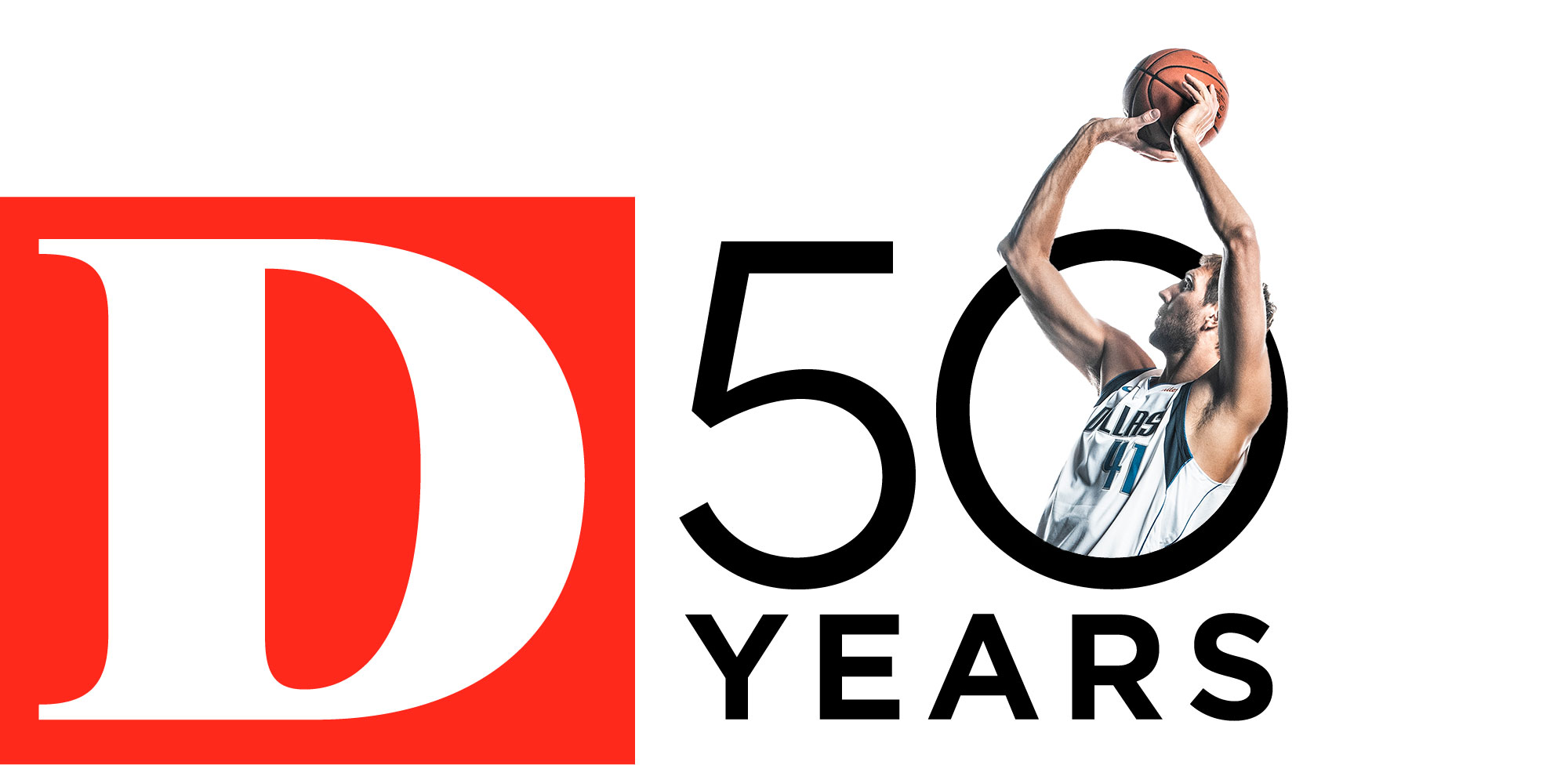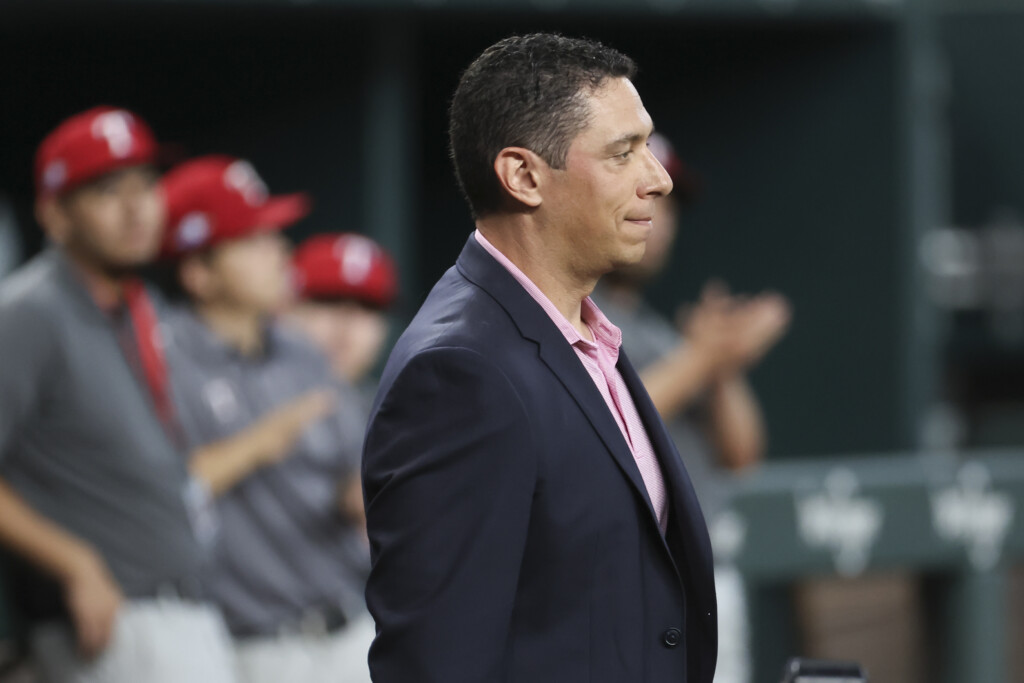Seventeen years ago, Jon Daniels felt like the future. He was the future, of course; every new general manager is in their nascent moments of the job. Whatever stamp he’d place on the Rangers, however indelible, would be his. But it is one thing to define where a bad organization goes next and quite another to embody the direction of an entire sport.
In 2005, two years after Moneyball, Michael Lewis’ game-shaping book about the Oakland A’s, Daniels profiled as every bit of the latter. Lewis’ book ignited a two-tiered arms race within baseball. The first, on the field, placed a new premium on college draftees and on-base percentage at the expense of speed and defense. The second, higher-level one took place in the front office, where teams scooped up young Ivy Leaguers in the vein of 31-year-old Oakland assistant general manager Paul DePodesta, who would take over the Dodgers less than a year after the book’s release. Win one of those races, so the thinking went, and your organization is ahead of the curve. Win both, and you’ll set the next one.
Texas had spent the previous half-decade firmly behind the pace, with four last-place finishes from 2000 through 2003 interrupted by a marginally more dignified third-place showing in 2004. Those last-place finishes came despite the Rangers cutting checks to a top-10 Opening Day payroll in each season, a ham-fisted byproduct of Proven Baseball Man John Hart spending Tom Hicks’ money in all the wrong places.
Replacing Hart with Daniels amounted to far more than an about-face. It was baseball’s trendiest facelift, stretched to the furthest extreme. At 28 years old, Daniels was the youngest general manager in the sport’s history, just four years removed from entering the game via an internship with the Colorado Rockies and six from graduating from Cornell with his economics degree. A single hire was all it took for one of baseball’s dumbest organizations to suddenly appear like it was on the cutting edge.
And before long, the Rangers really were. Daniels presided over the greatest era in the organization’s history, and his stamp was all over it. He beefed up international scouting in Latin America and Asia, and he swung a big stick at the trade deadline. He appointed the most beloved manager in franchise history and snatched franchise cornerstones like Josh Hamilton, Nelson Cruz, and Mike Napoli for pittances. The half-decade of futility eventually gave way to four division titles in seven seasons, twice as many as Texas’ entire history prior to him. A team with one measly playoff win to its name made consecutive World Series.
The Rangers won more than they ever had, in other words. But just as importantly, they were more intelligent. For a brief, fleeting moment, they were the savvy team so many others feared: the one liable to pluck your favorite international prospect from under your nose and refashion your scraps into its saviors. That was borderline inconceivable for an outfit known for bludgeoning its way to victory even in the best of times, an organization that was accused mostly of being too incompetent to develop its own pitching or too gullible to say no to Scott Boras.
There was no trophy for reshaping that perception—and thanks to Cruz’s tenuous grasp of no-doubles defense, no World Series trophy, either—but that victory was important as any Texas accomplished on the field. It proved, once and for all, a team that always should have been more really could become that.
Daniels didn’t do this alone. Nolan Ryan was also prominently involved, even if the idea that he tilted the balance of power both in the state and the AL West upon going to the Astros in 2014 was always grandiose. (Unless, that is, you believe in curses and/or the idea that a man whose most public position on baseball strategy is for pitchers to throw more often—despite data showing it only heightens injury risk—wielded real influence over the hyper-analytical office that predated him in Houston by three years.) But while Ryan epitomized the team’s identity (aggressively Texan), Daniels reflected its ambitions (smart, successful, significant). The former can transcend outcomes; the latter depends on them.
Which is why, as the team spiraled over its previous six seasons—the timeframe majority owner and managing partner Ray Davis cited in the statement announcing Daniels’ firing as critical to his decision—the perception around Daniels changed. More than a decade and a half into the job, he was the status quo, and the status quo was failure.
His final week on the job said everything worth knowing. On Saturday, he was booed during the team’s Hall of Fame ceremony as his successor, Chris Young, was greeted with cheers. On Monday, the firing of manager Chris Woodward was accompanied by a cacophony wondering when Daniels was next. The beacon of progress was now regarded as an obstacle to it, deadweight to jettison. And on Wednesday, Davis did exactly that.
You can quibble with the wisdom of the idea—whether the time has come for change, or whether this is Davis succumbing to impatience and unrealistic expectations. The implications are the same regardless. The future became the past, the visionary made obsolete. So it goes in sports, where stratagems bubble up and fizzle out, where many of the maxims that endure longest—defense wins championships, bunting is smart, shoot mid-range jumpers instead of three pointers—die hardest.
That isn’t to label Daniels, still a week shy of turning 45, a baseball relic. There is a reason two of his foremost lieutenants, A.J. Preller and Thad Levine, have turned around messes in San Diego and Minnesota, just as there’s a reason Young, whose only front office experience has come at Daniels’ feet, was handed his job. But he is no longer a driver of change, either. Daniels lasted the precise wrong amount of time—well beyond his youth, well short of a second act. And because everything else about the Rangers faded along the way, he became the easiest target left standing, a process he may have abetted by showing his face in bad times more than good.
For all we know, he was the right target, too. Daniels figures to be remembered fondly once the vitriol peters out, yet Young will get the bulk of the credit if the core of this Rangers team someday wins World Series under his watch. That’s all in the unknowable future, however. The only certainty is the future has finally left Jon Daniels behind.
Get the ItList Newsletter
Author






